Ongoing issues in the world require a sharp eye to see, evaluate and propose solutions to the hidden world of arrogant colonial politics. Today, we live in a world where information is freely available and borders no longer pose an obstacle to this, but it is difficult to identify different issues and their importance. Recognizing the issue of Palestine and its importance in the Islamic world was first proposed by Imam Khomeini, the founder of the Islamic Republic of Iran, and then presented to the complex world of politics. Yet, the world is such a large place for dissipating such information, and trivial issues tend to diminish its importance.
Sardar QasemSoleimani, who understood its importance from the time he understood the Khomeini movement, never let it out of sight and accepted it as a defined ideology. He always stood by the side of Palestinians in various forms, including in ideology and solidarity, and also in providing them with equipment . Sardar Qasem Soleimani, as a Muslim cross-border soldier in the Islamic Republic’s strategy of helping the oppressed, fought on the frontlines against arrogant forces until he achieved his goal of martyrdom for Islam. This article intends to examine the importance of Palestinian unity from his point of view by analyzing the speeches and actions of Sardar Qasem Soleimani and those who knew him well.
Keywords: #Palestinians #Unity #Resistance Forces# Qasem Soleimani
Forming a Military Arrangement in the Middle East
Although the interview of Sardar Soleimani (2019) was about the 33 Day War in Lebanon and its apparent and hidden factors, its outcome for Palestine can also be assessed in general. The United States has gained a great deal of power and influence in the Middle East since 2001 as the demographic debate in Palestine, and later in Lebanon, was under way.
Naturally, this gave the Zionist regime an opportunity to take advantage of the US military presence in the region and take action. In other words, this hegemony has been effective in
intimidating Iran and intimidating and stopping Syria from taking action.
Also, the presence of American troops sent a puzzling signal which was not clear for a long time, but became more visible with the 33 Day War in Lebanon.
According to Sardar Soleimani, it is understood that the new Middle East plan did not materialize in 2019, but has been a plan in the making; in 2006, it surfaced as the 33 Day War.
Palestine was an important piece of the puzzle in this plan, playing an important and constructive role. Although they started negotiations with other Arab leaders to place Palestine in a deadlock, Sardar Soleimani’s strategic foresight upset the equation, because he sought peace and reconciliation in the Middle East, but not of the Israeli-American kind.
Disagreement among the Palestinian Resistance Forces
Before Sardar Soleimani, the Palestinian resistance factions had said that the return of security agreements with the institution was a poke in the wheel for the people, dashing their hopes of achieving unity. The factions called on the Palestinian Authority (PA) to reverse the decision and end its policy of monopolising political decisions.
It seems that one of the greatest mistakes of the Oslo Accords in 1993 was the empowerment of the Palestinian Authority at the expense of the PLO, which deprived millions of Palestinians abroad of their right to decide their own fate. It also transformed the PA into a political entity governing non-sovereign territories, which largely harmed the just Palestinian cause.
National unity will contribute to all Palestinian factions going to the polls with a unified political programme. A clear and obvious political roadmap will help the Palestinians to avoid the state of chaos and uncertainty that surfaced in the wake of Hamas’ victory in the 2006 elections. Hamas failed to recognise the deals and agreements previously signed by Fatah with the Zionist side.
The Palestinian people and their cause have suffered a lot as a result of the 14-year-long political rift between the main rivals. A
unified political umbrella which includes all Palestinians is not just an urgent need, it is a way out of the political vacuum that led to the ordeal of the Gaza blockade and also emboldened the Zionist regime to expand in the West Bank.
What exacerbated these divisions and frustrations was President Trump’s new Middle East plan. The Greater Middle East Plan (GMENAI) is a scenario designed to address the goals of the hegemonic system, and in particular the formation of American hegemony in the 21st century. The plan was to turn the Arab states of the Middle East, Turkey, Iran, Pakistan, the Muslim countries of the Caucasus, and the Zionist regime into a Zionist-centric bloc in a free economy. By implementing the Greater Middle East Plan, the United States sought to create small dependent countries constantly in conflict with each other and, in order to gain more concessions under the banner of supporting the Israeli regime, ma
According to Sardar Soleimani’s interview, he understood the dimensions of many US-Zionist regime plans from the 33 Day War, one of which was the new Middle East plan, knowing that the issues plaguing resistance forces would send them to seek compromise with Israel in the not-too-distant future.
Attempts to Unite the Resistance Forces in Palestine
Hojjatoleslam Ismail Saadat, Senior Advisor to the Commander of the Quds Force of the Islamic Revolutionary Guard Corps, said about the role of Sardar Haj Qasem Soleimani in shaping the resistance forces: Sardar Haj Qasem Soleimani formed the Islamic resistance in the same way in different countries and helped the oppressed to cut off the hands of the oppressors. He helped them become self-sufficient, from making weapons to manufacturing missiles … He made no distinctions between Shia, Sunni and Zaydi faiths when it came to supporting the resistance forces. He sought to bring religions closer together and told his soldiers that they had no right to impose their beliefs on the soldiers of other countries.
So, the first step for Sardar Soleimani to unite the resistance forces was to put aside religions differences. Therefore, Shias, Sunnis, Christians, Zaydis and other faiths and religions should not be
discussed in the matter of unity among the resistance forces; religious differences should not be allowed to prevent resistance.
Dr Yusuf al-Hasayna says Qasem Soleimani was able to establish an organised resistance against terrorist plans directed by the US and Zionists, so he acted as a coordinator of resistance groups. He made resisting the US and Israel a top strategic priority for Muslims, considering the Zionist regime and its allies in the region as a base for advanced terrorism against the Muslim world and nations in West Asia.
So, Sardar Qasem Soleimani, in contact with the military commanders of Hamas and the Palestinian Islamic Jihad, announced the readiness of the Islamic Republic of Iran to fully support the forces of the Palestinian Islamic Authority.
The Commander of the Quds Force of the Islamic Revolutionary Guard Corps, during a telephone conversation with the commander of the Battalions of martyr Izz al-Din Qassam and the Saraya Command (Islamic Jihad Battalions) in Gaza, announced the Islamic Republic of Iran’s readiness to fully support the Palestinian Islamic Resistance Forces.
Also, Hojjatoleslam Hamid Shahriari, in an interview with Iran Press, hailed the “unparalleled role” played by Lieutenant General Qasem Soleimani in boosting Islamic unity among different Islamic denominations, reported Taqrib News Agency (TNA).
The cleric praised the assassinated commander of the IRGC for pursuing Islamic unity, both in its ideological and practical aspects.
He said, “General Soleimani deeply believed in Islamic unity and was fully aware of struggles against the arrogant powers ruling the world.” Hojjatoleslam Shahriari, in his interview conducted in the wake of the first martyrdom anniversary of the prominent counter-terrorism commander of Iran’s IRGC Quds Force, warned of efforts to disperse Muslims and spark sectarian wars among them.”
The Secretary General of the World Forum for Proximity of Islamic Schools of Thought noted, “General Soleimani was fully aware of enemy plots; therefore, he showed his deep belief in Islamic unity in practice, won the trust of the
different denominations in every battlefield he fought on and foiled plots to disperse Muslims.”
The cleric referred to the different instances of General Soleimani’s efforts to settle the disagreement between Kurdish groups, Sunni communities and different Islamic denominations and establish a unified front, a resistance front, in the best way possible.
“His deep belief in Islamic unity was key in his great achievements for prevailing security across the entire region” said Hojjatolislam Shahriari.
Vice SG of the Popular Front for the Liberation of Palestine said Lt General Soleimani told him the only path to liberating Palestine was armed struggle and national unity between Palestinians. Photos of Lt General Soleimani were also exhibited , showing moments of his missions across Syria and Iraq. And, as observers say, contrary to the will of the US and its regional allies, General Soleimani’s assassination has further strengthened unity among all members of the resistance front.
Conclusion
It is very important to know that this is an Islamic and Iranian issue in the region and that these are not separate from one another. Therefore, the military arrangement created in the region also endangers the borders of Islam and Iran. Just as ISIS and the Takfiri forces had to be defeated, the resistance forces have to continue their struggle. The new Middle East plan and the alignment of some countries in the region with the Zionist regime have created despair and apprehension for the Palestinian resistance forces, so Palestine as an arm of Islam must endure.
Also, Palestinian national unity will give a new impetus to the efforts aimed at reviving the Palestine Liberation Organization (PLO), to restore its role as the main representative of the Palestinian people, both those living inside occupied Palestine and the diaspora.
Many ifs were formed during the surrender of the resistance forces, the main one of which was not the destruction of Palestine and the resistance forces, but the return of the
arrogant ways and resulting dangers in the Middle East. As a result, in the opinion of Sardar Qasem Soleimani, the alliance of the resistance forces is a point of defense against the Zionist regime and must include the entire Islamic world in extension. Therefore, the unification of Palestine will pave the way for the unification of the Islamic world.
4
Sardar QasemSoleimani, who understood its importance from the time he understood the Khomeini movement, never let it out of sight and accepted it as a defined ideology. He always stood by the side of Palestinians in various forms, including in ideology and solidarity, and also in providing them with equipment . Sardar Qasem Soleimani, as a Muslim cross-border soldier in the Islamic Republic’s strategy of helping the oppressed, fought on the frontlines against arrogant forces until he achieved his goal of martyrdom for Islam. This article intends to examine the importance of Palestinian unity from his point of view by analyzing the speeches and actions of Sardar Qasem Soleimani and those who knew him well.
Keywords: #Palestinians #Unity #Resistance Forces# Qasem Soleimani
Forming a Military Arrangement in the Middle East
Although the interview of Sardar Soleimani (2019) was about the 33 Day War in Lebanon and its apparent and hidden factors, its outcome for Palestine can also be assessed in general. The United States has gained a great deal of power and influence in the Middle East since 2001 as the demographic debate in Palestine, and later in Lebanon, was under way.
Naturally, this gave the Zionist regime an opportunity to take advantage of the US military presence in the region and take action. In other words, this hegemony has been effective in
intimidating Iran and intimidating and stopping Syria from taking action.
Also, the presence of American troops sent a puzzling signal which was not clear for a long time, but became more visible with the 33 Day War in Lebanon.
According to Sardar Soleimani, it is understood that the new Middle East plan did not materialize in 2019, but has been a plan in the making; in 2006, it surfaced as the 33 Day War.
Palestine was an important piece of the puzzle in this plan, playing an important and constructive role. Although they started negotiations with other Arab leaders to place Palestine in a deadlock, Sardar Soleimani’s strategic foresight upset the equation, because he sought peace and reconciliation in the Middle East, but not of the Israeli-American kind.
Disagreement among the Palestinian Resistance Forces
Before Sardar Soleimani, the Palestinian resistance factions had said that the return of security agreements with the institution was a poke in the wheel for the people, dashing their hopes of achieving unity. The factions called on the Palestinian Authority (PA) to reverse the decision and end its policy of monopolising political decisions.
It seems that one of the greatest mistakes of the Oslo Accords in 1993 was the empowerment of the Palestinian Authority at the expense of the PLO, which deprived millions of Palestinians abroad of their right to decide their own fate. It also transformed the PA into a political entity governing non-sovereign territories, which largely harmed the just Palestinian cause.
National unity will contribute to all Palestinian factions going to the polls with a unified political programme. A clear and obvious political roadmap will help the Palestinians to avoid the state of chaos and uncertainty that surfaced in the wake of Hamas’ victory in the 2006 elections. Hamas failed to recognise the deals and agreements previously signed by Fatah with the Zionist side.
The Palestinian people and their cause have suffered a lot as a result of the 14-year-long political rift between the main rivals. A
unified political umbrella which includes all Palestinians is not just an urgent need, it is a way out of the political vacuum that led to the ordeal of the Gaza blockade and also emboldened the Zionist regime to expand in the West Bank.
What exacerbated these divisions and frustrations was President Trump’s new Middle East plan. The Greater Middle East Plan (GMENAI) is a scenario designed to address the goals of the hegemonic system, and in particular the formation of American hegemony in the 21st century. The plan was to turn the Arab states of the Middle East, Turkey, Iran, Pakistan, the Muslim countries of the Caucasus, and the Zionist regime into a Zionist-centric bloc in a free economy. By implementing the Greater Middle East Plan, the United States sought to create small dependent countries constantly in conflict with each other and, in order to gain more concessions under the banner of supporting the Israeli regime, ma
According to Sardar Soleimani’s interview, he understood the dimensions of many US-Zionist regime plans from the 33 Day War, one of which was the new Middle East plan, knowing that the issues plaguing resistance forces would send them to seek compromise with Israel in the not-too-distant future.
Attempts to Unite the Resistance Forces in Palestine
Hojjatoleslam Ismail Saadat, Senior Advisor to the Commander of the Quds Force of the Islamic Revolutionary Guard Corps, said about the role of Sardar Haj Qasem Soleimani in shaping the resistance forces: Sardar Haj Qasem Soleimani formed the Islamic resistance in the same way in different countries and helped the oppressed to cut off the hands of the oppressors. He helped them become self-sufficient, from making weapons to manufacturing missiles … He made no distinctions between Shia, Sunni and Zaydi faiths when it came to supporting the resistance forces. He sought to bring religions closer together and told his soldiers that they had no right to impose their beliefs on the soldiers of other countries.
So, the first step for Sardar Soleimani to unite the resistance forces was to put aside religions differences. Therefore, Shias, Sunnis, Christians, Zaydis and other faiths and religions should not be
discussed in the matter of unity among the resistance forces; religious differences should not be allowed to prevent resistance.
Dr Yusuf al-Hasayna says Qasem Soleimani was able to establish an organised resistance against terrorist plans directed by the US and Zionists, so he acted as a coordinator of resistance groups. He made resisting the US and Israel a top strategic priority for Muslims, considering the Zionist regime and its allies in the region as a base for advanced terrorism against the Muslim world and nations in West Asia.
So, Sardar Qasem Soleimani, in contact with the military commanders of Hamas and the Palestinian Islamic Jihad, announced the readiness of the Islamic Republic of Iran to fully support the forces of the Palestinian Islamic Authority.
The Commander of the Quds Force of the Islamic Revolutionary Guard Corps, during a telephone conversation with the commander of the Battalions of martyr Izz al-Din Qassam and the Saraya Command (Islamic Jihad Battalions) in Gaza, announced the Islamic Republic of Iran’s readiness to fully support the Palestinian Islamic Resistance Forces.
Also, Hojjatoleslam Hamid Shahriari, in an interview with Iran Press, hailed the “unparalleled role” played by Lieutenant General Qasem Soleimani in boosting Islamic unity among different Islamic denominations, reported Taqrib News Agency (TNA).
The cleric praised the assassinated commander of the IRGC for pursuing Islamic unity, both in its ideological and practical aspects.
He said, “General Soleimani deeply believed in Islamic unity and was fully aware of struggles against the arrogant powers ruling the world.” Hojjatoleslam Shahriari, in his interview conducted in the wake of the first martyrdom anniversary of the prominent counter-terrorism commander of Iran’s IRGC Quds Force, warned of efforts to disperse Muslims and spark sectarian wars among them.”
The Secretary General of the World Forum for Proximity of Islamic Schools of Thought noted, “General Soleimani was fully aware of enemy plots; therefore, he showed his deep belief in Islamic unity in practice, won the trust of the
different denominations in every battlefield he fought on and foiled plots to disperse Muslims.”
The cleric referred to the different instances of General Soleimani’s efforts to settle the disagreement between Kurdish groups, Sunni communities and different Islamic denominations and establish a unified front, a resistance front, in the best way possible.
“His deep belief in Islamic unity was key in his great achievements for prevailing security across the entire region” said Hojjatolislam Shahriari.
Vice SG of the Popular Front for the Liberation of Palestine said Lt General Soleimani told him the only path to liberating Palestine was armed struggle and national unity between Palestinians. Photos of Lt General Soleimani were also exhibited , showing moments of his missions across Syria and Iraq. And, as observers say, contrary to the will of the US and its regional allies, General Soleimani’s assassination has further strengthened unity among all members of the resistance front.
Conclusion
It is very important to know that this is an Islamic and Iranian issue in the region and that these are not separate from one another. Therefore, the military arrangement created in the region also endangers the borders of Islam and Iran. Just as ISIS and the Takfiri forces had to be defeated, the resistance forces have to continue their struggle. The new Middle East plan and the alignment of some countries in the region with the Zionist regime have created despair and apprehension for the Palestinian resistance forces, so Palestine as an arm of Islam must endure.
Also, Palestinian national unity will give a new impetus to the efforts aimed at reviving the Palestine Liberation Organization (PLO), to restore its role as the main representative of the Palestinian people, both those living inside occupied Palestine and the diaspora.
Many ifs were formed during the surrender of the resistance forces, the main one of which was not the destruction of Palestine and the resistance forces, but the return of the
arrogant ways and resulting dangers in the Middle East. As a result, in the opinion of Sardar Qasem Soleimani, the alliance of the resistance forces is a point of defense against the Zionist regime and must include the entire Islamic world in extension. Therefore, the unification of Palestine will pave the way for the unification of the Islamic world.
4

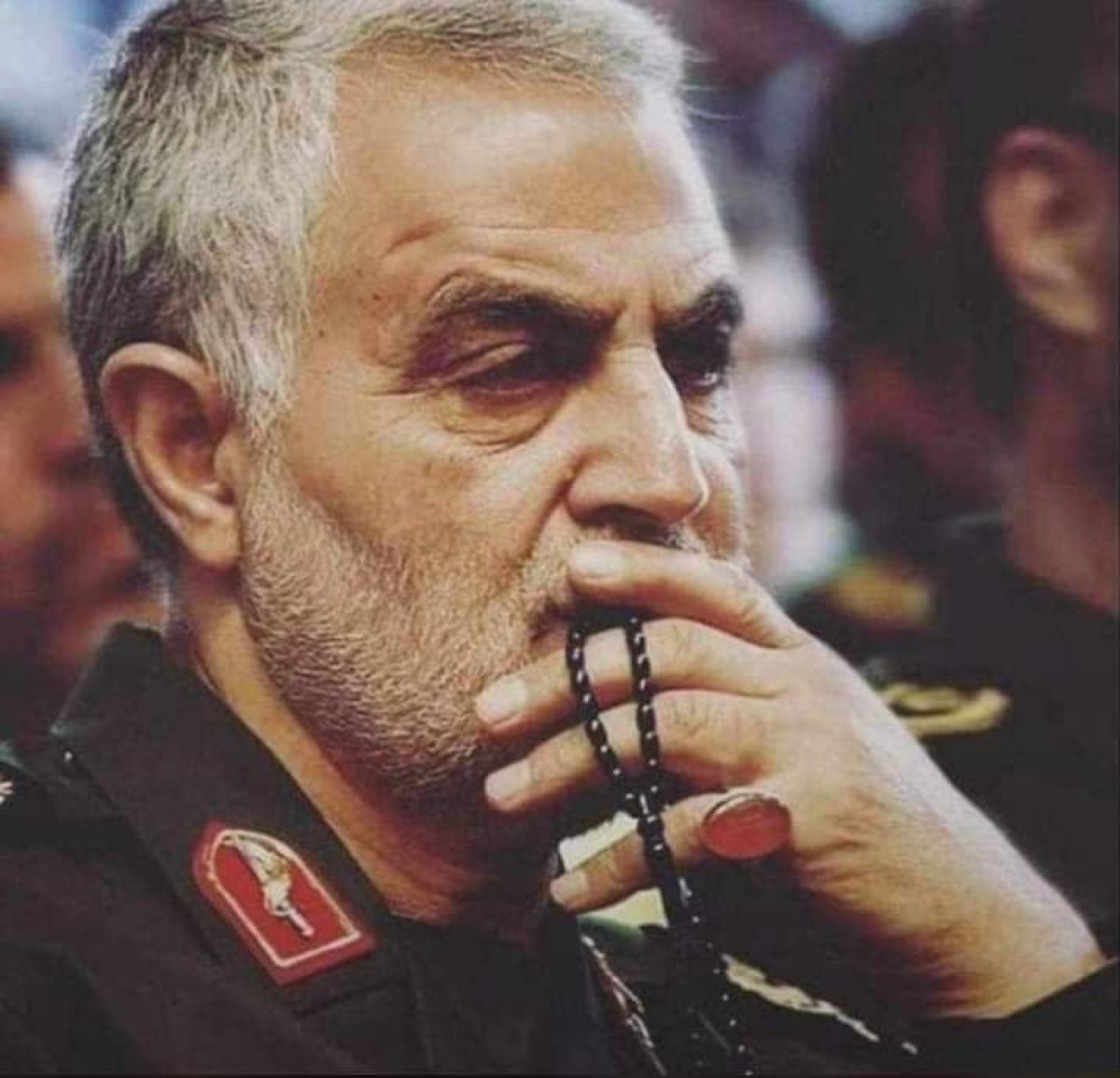
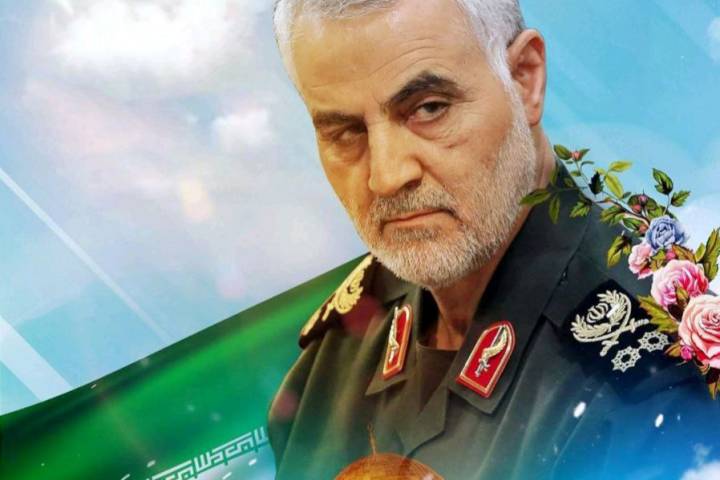
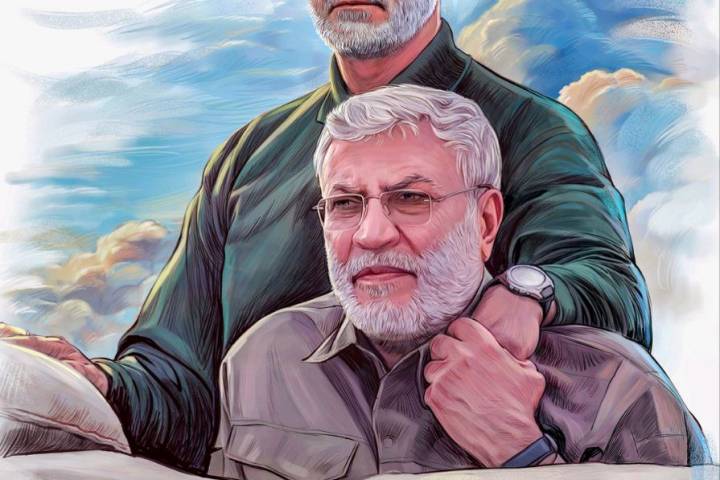
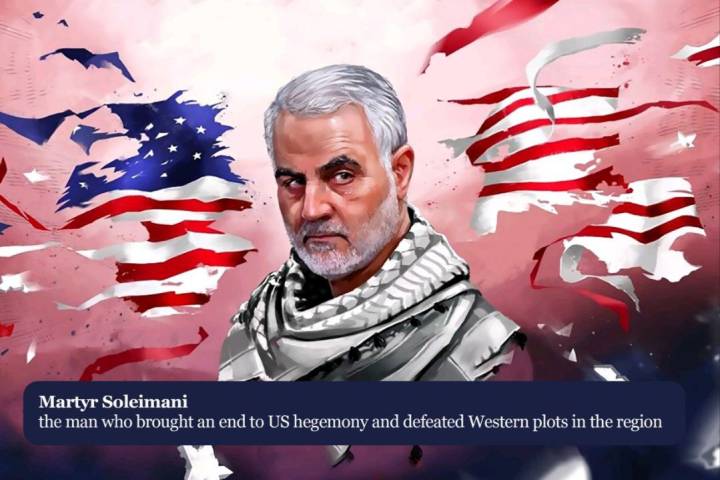
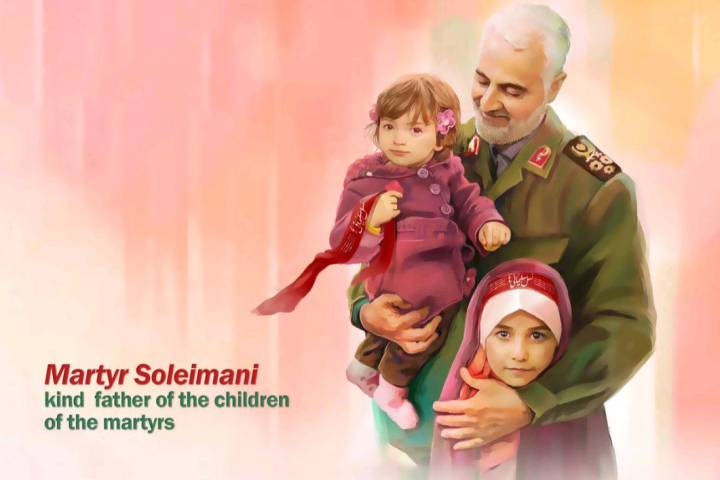
Comment
Post a comment for this article